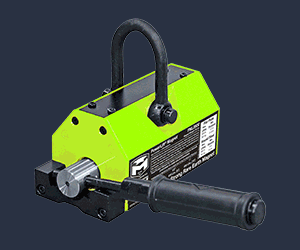Fail Safe
What recession? In a medical device market that continues to grow, this Southern California contract machining shop specializes in producing intricate surgical instruments that perform without flaw and without fail.
Posted: March 26, 2008
What recession? In a medical device market that continues to grow, this Southern California contract machining shop specializes in producing intricate surgical instruments that perform without flaw and without fail.
From the world of manufacturing to the weekend home improvement job, the tools that help make things (and make life) easier are a prevalent, important part of our life. But it's hard to think of a tooling category more critical than the tools that help to restore people's health . . . those tools that help surgeons save lives, for instance. Every aspect of surgical procedures – and the tools used during them – must be highly precise, without flaw and without fail.
For the past 20 years, Gregory Viksman has made a successful business out of producing stainless steel, titanium and plastic surgical instruments for the medical devices industry. His company, Spec Engineering Company (Van Nuys, CA), machines delicate, intricate pieces, taking raw material to precision finished parts with machine surface finishes of 32 to 40 Ra.
Materials range from soft 303 stainless steel to hard 465 Custom. Like PH 13-8 stainless steel, 465 Custom is not easy to machine. The parts are designed with complicated geometry, and positional tolerances are typically in the range of ±.002 in (.05 mm) true position, with hole size tolerances of ±.0003" (.008 mm).
Spec Engineering also machines special plastics for radiolucent transparent alignment fixtures used to position drills and other tools used during surgery. These fixtures are made out of high-performance polymers, such as the glass-reinforced Ultem® 2300 and carbon fiber-reinforced PEEK. Both are very abrasive and require the use of diamond-coated or diamond-insert cutters.
In terms of machining center capability, the company standardized on MAG Fadal vertical machining centers, with ten VMC 4020 machines currently in operation on their shop floor. The 48 in (1.219 mm) x 20 in (508 mm) table size of these VMCs provides the space to fixture 10 to 20 parts in one setup. Some parts are set up in multiples in a vice.
"These VMC 4020s have the rigidity and capability needed to machine titanium, while holding the dimensional tolerances and surface finish quality our customers need," says Mr. Viksman. "We use VH 165 4th-axis rotary tables on some of the 4020s, and have a setup for 5-axis machining using TR 165." Axis positioning accuracy on the VMC 4020 is ±.0002 in (±.0050 mm), with repeatability of ±.0001 in (±.0025 mm).
Medical Devices: Against the Grain
The U.S. may be facing a general recession, but according to the National Tooling & Machining Association (NTMA), the customer market for medical instrument production is now forecast to grow by 4 percent in 2008, and the precision machining sector is projected to grow by 8 percent.
Spec Engineering's machines are equipped with a 10,000 rpm coolant-thru spindle for high-speed machining, with the rigid tapping option. Cutting feed rates are up to 600 ipm (15.24 mpm) with rapid traverse of 900 ipm (22.86 mpm) in the X- and Y-axes. A 21-tool automatic tool changer serves the various machining processes.
Batch sizes at Spec Engineering range from 25 to 300 parts or more, with a typical production run being approximately 100 pieces. Part programs are developed off-line and downloaded to the machine controls. The company's machining capabilities are rounded out with a Hardinge turning center and Star Swiss screw machines.
What is the most challenging type of part that the company tackles? "Medical drill guides and guide drops," answers Mr. Viksman. "We machine holes in two different planes on the part and these features require extremely close tolerance work. Hole diameter tolerances are typically ±.0002 in. The thru-position projection tolerance may be ±.003 in over 4.25 in."
The work may not be easy, but doing it well is important. Successful surgery depends on the precision of the instruments as well as the doctor's skill. Maintaining critical accuracies has paid off for Spec Engineering in terms of the continued business relationship with their medical instrument-producing customers.
"These machining centers are the right equipment at the right price for our type of work," explains Mr.Viksman. "We are able to re-invest profits back into our operation, expanding our number of machining centers, which allows us to increase our capabilities and take on diverse projects at the same time."
A new emphasis on minimally invasive surgical procedures has hastened the development of more intricate instruments, requiring specialists to produce them. The medical device industry in general – and precision machining work in California in particular – has been in a growth mode. Shops that have invested in the right level of metalworking technology are now reaping the benefits of a region that is also rich with die and mold machining and prototype work, as well as production parts manufacturing for the aircraft/aerospace, automotive, and other industries.
Spec Engineering Company, 13754 Saticoy Street, Van Nuys, CA 91402, 818-780-3045.
MAG Fadal, Fadal Machining Centers, LLC, 20701 Plummer Street, Chatsworth, CA 91311, 818 407 1400, Fax: 818 407 0020, www.fadal.com.










